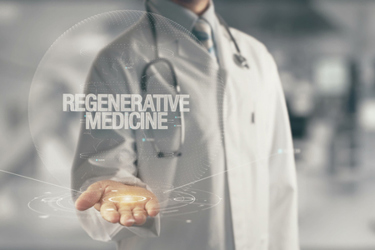The Role Of Stem Cell Biology, Machine Learning, And Laser Optics On Regenerative Medicine

By Erin Harris, Editor-In-Chief, Cell & Gene
Follow Me On Twitter @ErinHarris_1

Nabiha Saklayen, Ph.D., CEO and co-founder of Cellino Biotech (Cellino) is pioneering a new frontier in regenerative medicine through the integration of laser physics, machine learning, and robotics. The startup is attempting to create automated ways to produce cell therapies and raised an $80 million Series A round led by Leaps by Bayer in 2022.
According to the team at Cellino, patient-specific cells provide the safest, most effective cures for these indications. However, current autologous processes are not scalable due to extensive manual handling, high variability, and expensive facility overhead. Cellino’s vision is to enable healthier lives worldwide with personalized human cells. As such, Cellino is automating the production of high-quality induced pluripotent stem cells (IPSCs), a breakthrough that could make personalized, regenerative treatments more accessible and efficient. I met with Saklayen to discuss how machine learning, laser optics, and stem cell biology will pave the way for stem cell-derived regenerative medicines.
Talk to us about Cellino Biotech and its mission.

Cellino was born from a convergence of machine learning, physics and robotics, and we have always held a profound belief in the transformative power of personalized regenerative medicine. Our slogan, “Your cells, Your cure,” encapsulates our commitment to creating patient-specific therapies that align with each individual’s unique biology to provide safe, effective therapies. Our mission is to develop curative therapies in regenerative medicine, which will enable society to move beyond treating symptoms and toward potential cures for chronic conditions. This approach will help shift the paradigm from "sick care" to a more holistic, proactive approach to health, ultimately allowing people to lead longer, healthier lives.
What are the current barriers facing stem cell generation?
Nabiha Saklayen, Ph.D.: Key challenges facing today’s methods of personalized stem cell manufacturing are scalability, contamination risks, and variability. Traditional methods are highly artisanal and labor intensive, requiring highly trained scientists to perform manual cell culture processes. High-grade clean rooms are required to avoid contamination from open well transfers, which significantly increases labor and facility costs. In addition, identifying the best cell colonies for therapeutic use is a time-consuming and imprecise process that varies widely from scientist to scientist.
Cellino’s vision is to make personalized regenerative medicines viable at large scale for the first time. How do machine learning, stem cell biology, and laser optics come into play to potentially realize this mission?
Nabiha Saklayen, Ph.D.: Our proprietary machine learning algorithms meticulously assess cell colonies and identify those with the highest therapeutic potential. Cellino’s laser system enables us to remove specific cells with single-cell precision, reducing the risk of contamination and increasing the efficiency of the manufacturing process. Our closed-cassette system further enhances this process by enabling imaging and cell manipulation in a controlled environment, ensuring that high-quality, patient-specific stem cells can be produced at scale.
Do you and your team have clinical validation for your product? What are your next near-term steps?
Nabiha Saklayen, Ph.D.: We are advancing toward clinical validation with several key milestones on the horizon. Our immediate focus is on building the next generation of our automated closed-cassette system, which will further refine the biomanufacturing process for regenerative medicine. We are also actively pursuing collaborations with top research institutions and biopharma companies to build our pipeline and explore new therapeutic applications.
